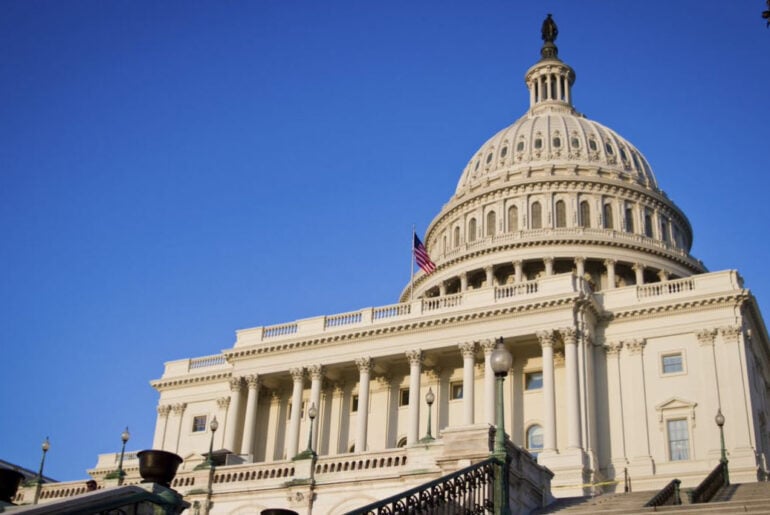On 9 April 2024, Treasury released two sets of proposed regulations regarding the excise tax on repurchases of corporate stock under section 4501. The proposed regulations were published in the Federal Register on 12 April 2024. Comments are due on the procedural matters by 13 May 2024, but taxpayers have until 11 June 2024 to submit comments on the substantive guidance.
In January 2024, the Canadian Securities Administrators published amendments and changes to several national instruments and companion policies to implement a new non-mandatory access model for preliminary and final prospectuses of non-investment fund reporting issuers. The access model is not available for rights offerings, medium term note programs and other continuous distributions under a shelf prospectus. The amendments are effective 16 April 2024.
Both the Antitrust Division of the US Department of Justice (DOJ) and the Federal Trade Commission (FTC) (collectively, “Agencies”) have submitted a joint Statement of Interest in a third-party dispute currently active in the Federal District of New Jersey. The Statement clarifies the Agencies’ positions on price fixing through the use of algorithms. The third-party dispute involves a class action against casino hotels in the Atlantic City, New Jersey area.
On March 6, 2024, the US Securities and Exchange Commission adopted final rules (“Final Rules”) that enhance and standardize the disclosure of climate-related information in registration statements and Exchange Act reports. The Final Rules were scaled back after years of significant feedback from registrants and other stakeholders, with the Commission receiving more than 24,000 comment letters in response to the initial rule proposal in March 2022.
California’s regulators have made employment noncompetes (and knowing which employees are bound by them and how) a key compliance item.
Effective 1 January 2024, AB 1076 amends Section 16600 of the state’s Business and Professions Code to “void the application of any noncompete agreement in an employment context, or any noncompete clause in an employment contract, no matter how narrowly tailored.” In addition, the law requires employers to notify certain current and former California employees that any agreement containing a noncompete provision is void.
On 7 March 2024 at the American Bar Association’s 39th National Institute on White Collar Crime, Deputy Attorney General Lisa Monaco announced several new initiatives the Department of Justice is implementing to address concerns around the use of AI in federal criminal activity along with potential corporate compliance failures that might facilitate the misuse of AI.
On 6 March 2024, California Assistant Attorney General Paula Blizzard announced at the American Bar Association’s annual National Institute on White Collar Crime the state’s intentions to reinvigorate criminal enforcement of the Cartwright Act, California’s primary antitrust statute. California has not criminally prosecuted violations of the Cartwright Act in 25 years. Blizzard’s announcement comes shortly after California enacted legislation to codify restrictions against no-poach and non-compete clauses. All-in-all, state officials appear poised to follow in the Biden administration’s footsteps and increase antitrust enforcement. Companies should be on notice of certain states like California that are taking steps to strengthen antitrust enforcement and alleged agreements to fix prices, divide markets, and rig bids could soon lead to criminal penalties under either state or federal statutes.
Quebec’s Bill 96 significantly expanded existing French language requirements under Quebec’s Charter of the French language, including new translation requirements for a wide range of employment documents. Similarly, the treatment of commercial standard form contracts (or contracts of adhesion) must now be translated into French first, even if the parties agree to proceed in a language other than French, such as English.
On Thursday, 7 March 2024, the Tax Subcommittee of the House Committee on Ways and Means held a hearing on the Organization for Economic Co-operation and Development (OECD) inclusive framework’s Pillar One project. The hearing marked Congress’ first public inquiry dedicated solely to Pillar One since the release of the draft Multilateral Convention to Implement Amount A of Pillar One (MLC) and the final Amount B report. The same Subcommittee examined both Pillar One and Pillar Two in a July 2023 hearing that featured then-Deputy Assistant Secretary for International Tax Affairs Michael Plowgian.
On March 6, 2024, the US Securities and Exchange Commission (“SEC” or “Commission”) adopted final rules (“Final Rules”) that enhance and standardize the disclosure of climate-related information in registration statements and Exchange Act reports. The Final Rules were scaled back after years of significant feedback from registrants and other stakeholders, with the Commission receiving more than 24,000 comment letters in response to the initial rule proposal (“Proposed Rules”) in March 2022.
Below we discuss, among others: (i) the key takeaways and requirements for climate disclosures under the Final Rules, (ii) the key differences between the Proposed Rules and Final Rules, (iii) the expected compliance dates for disclosures under the Final Rules, and (iv) some practical considerations for companies that are subject to multiple climate disclosure regimes and regulations such as the new California and European Union climate reporting requirements.



